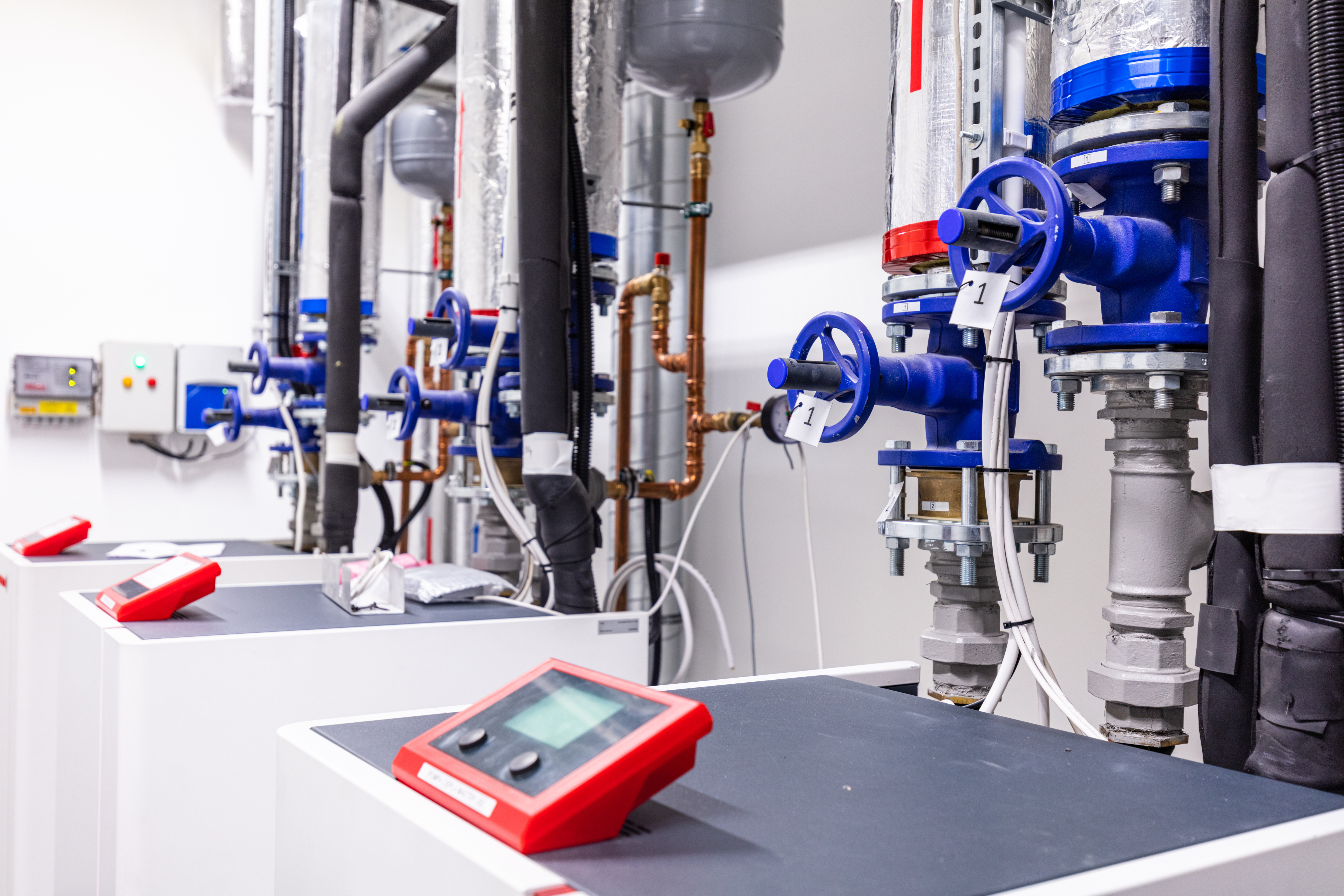
Heat pumps are an efficient and environmentally friendly way to heat your public premises or business. There are two main types of heat pumps: air source and ground source, defined by where they draw their energy (ultimately derived from the sun).
Air source heat pumps extract heat from the air outside, while ground source heat pumps extract heat from the ground. Both types of heat pumps use a refrigerant to transfer heat from one place to another, and are very efficient, with some models able to achieve a Seasonal Performance Factor (SPF) of up to 5.0. That means for every 1 unit of electricity used by the heat pump, up to 5 units of heat can be generated.
How Do Heat Pumps Work?
Heat pumps work by transferring heat from the ground or air to your building’s heating, ventilation, and air conditioning network using refrigerant fluids and a heat exchange system. In both air source and ground source heat pumps, a compressor is used to increase the pressure and temperature of the refrigerant fluid. The fluid then passes through coils whereby the heat is transferred into the air or water being pumped around the building. The fluid cools as it gives up its heat and returns to the compressor where the cycle begins again.
Let's take a closer look at each type of heat pump.
Air Source Heat Pumps
Air source heat pumps are the most common type of heat pump used in homes and businesses, due to their lower cost and smaller footprint. They extract heat from the air outside and use the energy to operate central heating or water boiler systems. Air source heat pumps are relatively easy to install and maintain, which makes them a popular choice in urban environments. The downside of air source heat pumps is that they can be less efficient in very cold weather – you may still require a gas boiler as backup even after upgrading to an air source heat pump.
Ground Source Heat Pumps
Ground source heat pumps extract residual heat from the ground. They are usually more expensive to install than air source heat pumps and require a lot more space, but they are more efficient and can provide year-round heating and cooling. Ground source heat pumps can also be used to generate hot water.
One downside of ground source heat pumps is that they require a large area of land for the installation process – which is why they are more common in new builds than as additions to existing buildings. This being said, many supermarkets, large offices, and universities have successfully implemented a ground source system underneath a car park or green area on their premises. Once installed, the pipe network requires little to no maintenance.
What Next?
Heat pumps of both kinds are a great way to efficiently heat and light a business premises while reducing dependence on fossil fuels. If you're thinking of switching to a heat pump, have a chat with one of our Lowe & Oliver heating engineers to see which type would be best for your needs and budget.
Image Source: Canva




